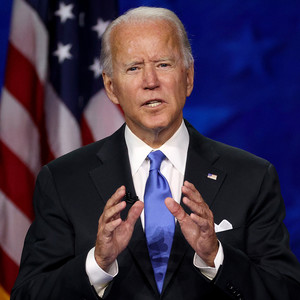WP reported on the new US strategy for Syria after the overthrow of Assad

The Biden administration is not prepared to reconsider its policy of non-intervention in Syria in the short term, a senior administration official told The Washington Post.
“It is still too early to say whether HTS’s (Hayat Tahrir al-Sham, a terrorist organization banned in Russia) promises of pluralism and democracy will be fulfilled, and what the group’s broader goals are,” he said. “We are not going to draw any conclusions yet.”
According to the WP source, the Biden administration held "constructive" talks on Syria with the team of future US President Donald Trump (who will take office on January 20). Trump himself, commenting on the events in Syria, called on the American leadership not to interfere in what was happening: "This is not our fight. Let them play by their own rules."
On December 8, after less than two weeks of offensive, Syrian anti-government forces, in which HTS plays a key role, entered Damascus and announced the overthrow of President Bashar al-Assad. He resigned and received asylum in Russia. Prime Minister Mohammed Ghazi al-Jalali declared his readiness to cooperate with any leadership elected by the population for a peaceful transition of power .
State Department spokesman Matthew Miller also said that the US is not planning to lift sanctions on Syria for now, since restrictive measures and the potential resumption of diplomatic relations are tools that Washington can use to encourage the new leadership to engage in an “inclusive political process.”
Washington's top military priority remains preventing the revival of the Islamic State group (IS, recognized as terrorist and banned in Russia). The US military contingent in Syria continues to strike militants' locations.
HTS is also designated as a terrorist organization in the United States, and there is no indication that the designation will be lifted. Miller said the group has been doing “the right things” lately, but cautioned against any group trying to take advantage of the unrest by trying to seize new territory, the newspaper notes.
The Pentagon is participating in a collective intelligence effort to assess various militant groups in Syria "to identify potential partners that meet the security interests of the United States and its allies," a Pentagon spokesman told WP.
The US is also investigating how much weapons and equipment remained after Russian forces "withdrew from the HTS offensive zone," as these weapons and equipment could be used against the US side in the future, depending on who gets their hands on them, another US official told WP.
The publication's sources reported that American troops stationed in eastern Syria coordinated the actions of allied rebels and allowed them to seize strategic territory previously held by government forces and Iran, and also called on neighboring Iraq to prevent border crossings.
Senior American diplomats have traveled to Turkey, Jordan, Lebanon, Iraq and Israel for talks since the fall of the Assad regime, WP writes. Egypt and Saudi Arabia are also involved in discussing plans to maintain stability in Syria and attempts to facilitate a peaceful transition of power .
As for the negotiations with Turkey, the US is trying to avoid a direct confrontation with it because of the support of different groups by the parties: Ankara supports the Syrian National Army (SNA), and Washington - the Syrian Democratic Forces (SDF, Syrian Kurds, whom the Turkish authorities consider terrorists). During the offensive of anti-government forces, there were clashes between them, in particular, the SNA captured the city of Manbij in northern Syria, which was controlled by the Kurdish militia.
WP notes that it is Kurdish-led groups, including the SDF, that guard the al-Hol camp and other prisons in northeastern Syria, where “thousands” of ISIS fighters are still being held. The former commander of US forces in the region (2019-2022), retired General Kenneth McKenzie, stressed that the SDF, although probably the most armed and cohesive force in Syria, could “face a test” if HTS or Turkish-backed groups start fighting them.
In his assessment, HTS may not leave the Kurds in semi-autonomy in northeastern Syria, which they have controlled for several years. “The first test for any country is to restore its full sovereignty. <...> Extremist groups tend to remain extremist,” McKenzie said.
Read RBC on Telegram .




























































